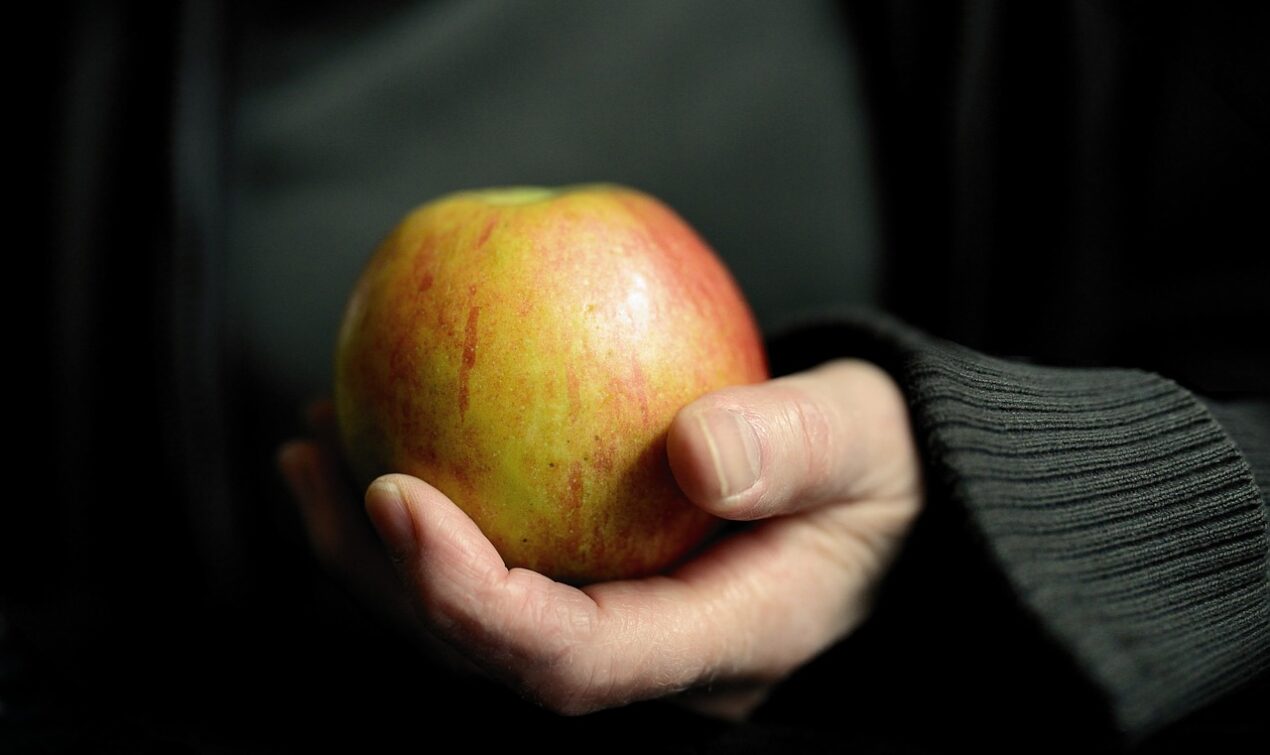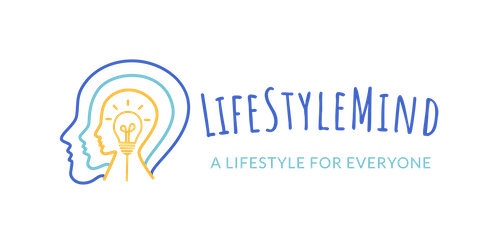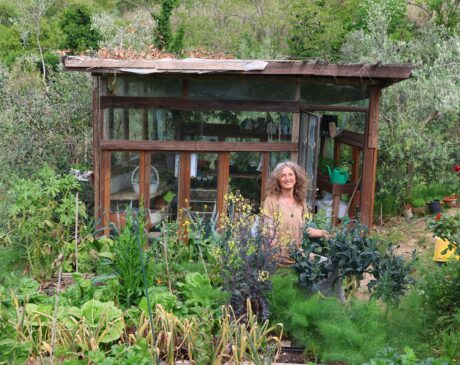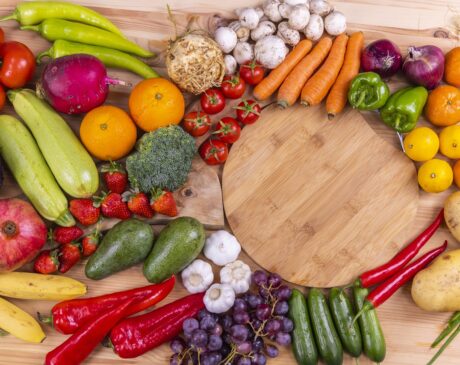The ultimate vegetarian lifestyle guide: pros and cons

As more individuals seek healthier and ethical alternatives to their diets, vegetarianism has emerged as a popular choice. By adopting a plant-based lifestyle, people not only improve their own well-being but also contribute to a more sustainable and compassionate world.
Whether you’re a new vegetarian or someone looking to enhance your existing practices, this comprehensive guide will provide you with the knowledge and tools to navigate the vegetarian journey with confidence.
Let’s discover together everything to know about being vegetarian!
Vegetarian diet benefits
As we’ve already seen in our article ‘Vegetarian Lifestyle: All the Benefits’, let’s briefly summarize all the benefits that a vegetarian diet brings to the body and the environment:
- Improved health: a well-planned vegetarian diet can provide essential nutrients, such as fiber, vitamins, and minerals, while being lower in saturated fat and cholesterol. This can lead to a reduced risk of heart disease, obesity, type 2 diabetes and certain cancers.
- Weight management: vegetarian diets tend to be lower in calories and higher in fiber, which can support weight management and help maintain a healthy body weight.
- Increased nutrient intake: vegetarian diets often include a variety of fruits, vegetables, whole grains, legumes, nuts, and seeds, which can provide a wide range of nutrients like antioxidants, phytochemicals, and beneficial plant compounds.
- Environmental sustainability: plant-based diets have a lower environmental impact compared to diets rich in animal products. By reducing reliance on animal agriculture, vegetarianism helps conserve water, reduce deforestation, and decrease greenhouse gas emissions.
- Ethical considerations: many people choose vegetarianism due to ethical concerns for animal welfare; by eliminating animal products from their diets, individuals contribute to reducing the demand for factory farming and the associated cruelty towards animals.
- Culinary exploration: adopting a vegetarian lifestyle encourages culinary creativity and the exploration of new flavors, ingredients, and cooking techniques: it opens doors to a diverse range of plant-based recipes and dining experiences.
- Positive social impact: being vegetarian can inspire others to make healthier and more sustainable food choices; it can also foster conversations and promote awareness about the impact of our dietary choices on both personal health and the planet.
What are the pros and the cons of being vegetarian?
Let’s discover pros and cons of being vegetarian!
Pros
- Vegetarian diets may lower your risk for disease: vegetarian diets have been associated with a lower risk of certain diseases; numerous studies have shown that adopting a well-planned vegetarian diet can have positive effects on health and reduce the risk of various conditions, like heart disease, type 2 diabetes and obesity.
- Variety of diets: there are many options to eat well, deliciously and healthily even without consuming meat; in addition, there are various ways to be vegetarian. Someone eliminate only meat but not fish, while others also exclude certain animal-derived products; in short, there are plenty of options to explore!
Cons
- Nutritional considerations: it’s important for vegetarians to ensure they obtain all necessary nutrients, particularly vitamin B12, iron, zinc, omega-3 fatty acids, and calcium. These nutrients are more commonly found in animal-based products, so careful planning and potentially supplementation are needed to prevent deficiencies.
- Social challenges: vegetarians may face challenges when dining out or attending social gatherings where meat-based dishes are prevalent. Limited options or misunderstandings about dietary choices can sometimes make social situations challenging.
- Potential for imbalanced diets: while a well-planned vegetarian diet can be nutritionally adequate, there is a risk of relying too heavily on processed vegetarian alternatives or lacking variety in food choices. It’s important to ensure a balanced intake of diverse plant-based foods to meet all nutritional needs.
- Personal preferences and adaptation: some individuals may find it challenging to adapt to a vegetarian lifestyle due to personal taste preferences or cultural and familial traditions, that heavily revolve around meat consumption. It may require time and effort to adjust to a new way of eating.
It’s worth noting that individual experiences may vary, and the perceived pros and cons can differ based on personal beliefs, motivations, and dietary choices within the vegetarian spectrum. Consulting with a healthcare professional or registered dietitian can help address specific concerns and ensure a well-rounded vegetarian diet.

What happens if I stop eating meat?
If you stop eating meat, several things can happen:
- Nutritional changes: by eliminating meat from your diet, you will experience a shift in your nutritional intake. Meat is a significant source of protein, iron, zinc, and certain B vitamins; you’ll need to ensure you obtain these nutrients from other plant-based sources to meet your nutritional needs. Incorporating foods like legumes, tofu, tempeh, nuts, seeds, whole grains, and leafy greens can help provide the necessary nutrients.
- Weight loss: cutting out meat from your diet can potentially lead to weight loss or weight maintenance, depending on your overall dietary choices. Plant-based diets tend to be lower in calories and saturated fat, which can contribute to better weight management.
- Increased fiber intake: plant-based diets often contain more fiber than meat-based diets. Fiber is essential for maintaining a healthy digestive system, regulating blood sugar levels, and promoting satiety.
- Environmental impact: choosing to stop eating meat can have a positive environmental impact; livestock production is resource-intensive and contributes to deforestation, greenhouse gas emissions, and water pollution. By reducing your meat consumption, you can help decrease the environmental footprint associated with animal agriculture.
Transitioning from omnivore to vegetarian, where to start?
When transitioning from an omnivorous diet to a vegetarian one, it’s helpful to start with a few key steps:
- Educate yourself: learn about the different types of vegetarian diets, such as lacto-ovo vegetarian (includes dairy and eggs) or vegan (excludes all animal products). Understand the nutritional considerations and potential food sources for essential nutrients like protein, iron, calcium, and vitamin B12.
- Gradual approach: consider a gradual transition by gradually reducing your consumption of meat and incorporating more plant-based meals into your diet. This approach allows your taste buds and digestive system to adapt gradually to the changes.
- Explore plant-based proteins: research and experiment with various plant-based protein sources like legumes (beans, lentils, chickpeas), tofu, tempeh, seitan, quinoa, and edamame. These can provide the protein your body needs while offering a variety of flavors and textures.
- Build balanced meals: focus on creating well-balanced vegetarian meals that include a combination of whole grains, fruits, vegetables, legumes, nuts, and seeds. This ensures you get a good mix of macronutrients (carbohydrates, proteins, and fats) and micronutrients (vitamins and minerals).
- Seek support and resources: connect with vegetarian communities, online forums, and social media groups. These platforms can provide support, guidance, and recipe ideas from individuals who have already gone through the transition or are on a similar journey.
We want to remind you that everyone’s transition to a vegetarian diet is unique!
It’s essential to listen to your body, be patient with yourself, and make adjustments based on your individual preferences and needs.
Being vegetarian between past and present: the new fashions and trends
In recent years, the popularity of vegetarianism has been on the rise, with more people embracing plant-based diets for various reasons; while vegetarianism is not a new concept, its resurgence in the modern era has brought about new fashions and trends within the vegetarian community.
Let’s explore how being vegetarian has evolved and the exciting developments in this growing movement!
Looking back, vegetarianism has a rich history dating back to ancient civilizations; philosophers like Pythagoras and religious practices like Buddhism and Jainism have long advocated for a vegetarian lifestyle.
However, in the past, being vegetarian was often seen as an alternative or niche choice, with limited options and societal understanding.
Fast forward to the present, and we find ourselves in a time where being vegetarian has become increasingly fashionable and accessible; it is no longer seen as an outlier but rather a mainstream choice embraced by people from all walks of life.
The rise of vegetarianism has been fueled by various factors, including health concerns, ethical considerations, and environmental awareness.

One notable trend in the modern vegetarian movement is the emergence of innovative and mouthwatering plant-based cuisine; chefs and food enthusiasts are now pushing culinary boundaries, creating delectable vegetarian dishes that rival their meat-based counterparts.
From hearty vegetable-based burgers and scrumptious plant-based sausages to decadent dairy-free desserts, the options are expanding, tantalizing the taste buds of both vegetarians and non-vegetarians alike.
Additionally, the growth of social media has played a significant role in promoting vegetarianism as a lifestyle choice; platforms like Instagram and YouTube are filled with influencers and content creators who share their vegetarian journeys, showcasing vibrant and visually appealing meals.
This online presence has not only provided a sense of community for vegetarians but also inspired others to explore meatless alternatives and embrace a more plant-based diet.
In conclusion…
Being vegetarian has transcended the boundaries of the past and entered a new era of fashion and trends. What was once considered a niche lifestyle has now become a mainstream choice embraced by individuals worldwide; the availability of diverse and delicious vegetarian options, the influence of social media, the integration of ethical and sustainable practices and the focus on environmental impact have all contributed to the evolution of being vegetarian in the present day.
So, whether you are a longtime vegetarian or exploring this lifestyle for the first time, the vegetarianism offer a world of exciting possibilities and a chance to make a positive difference in your own life and the world around you.



